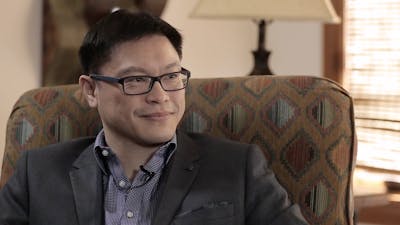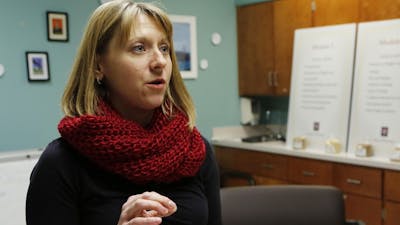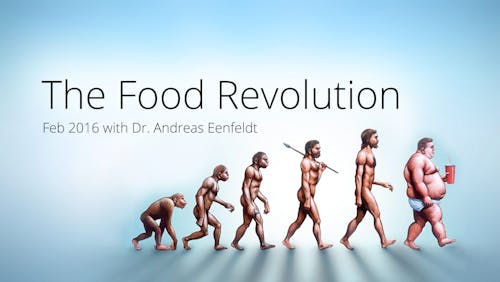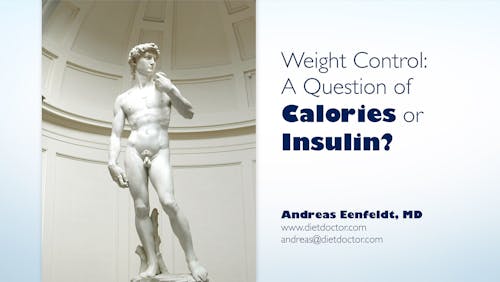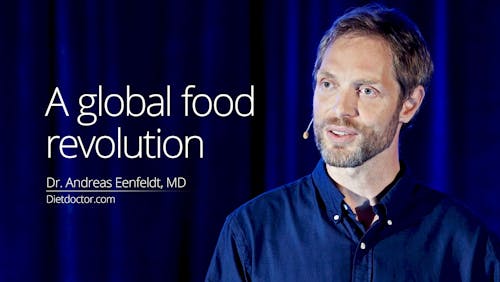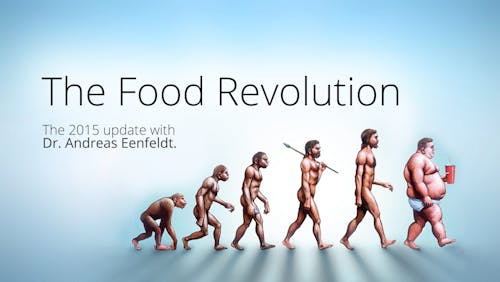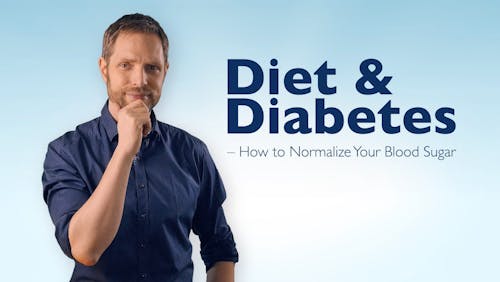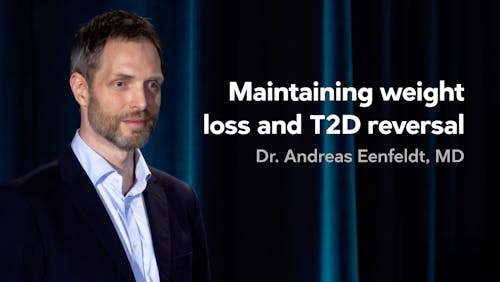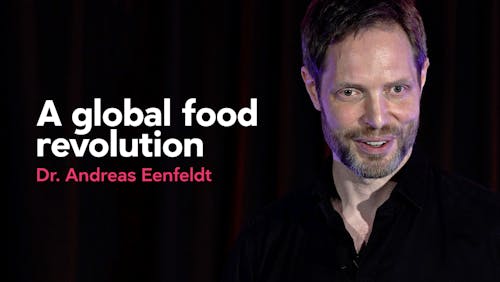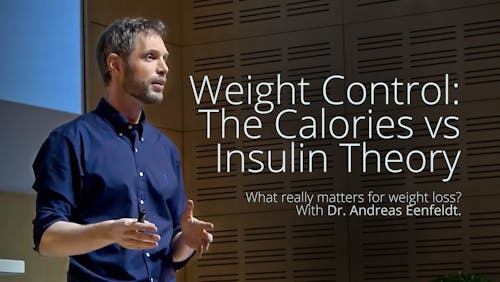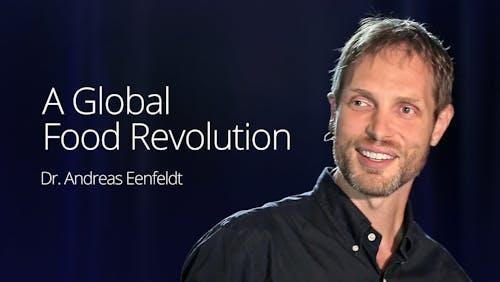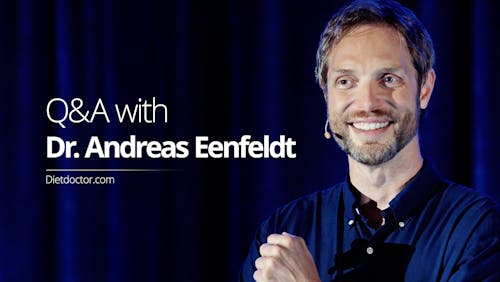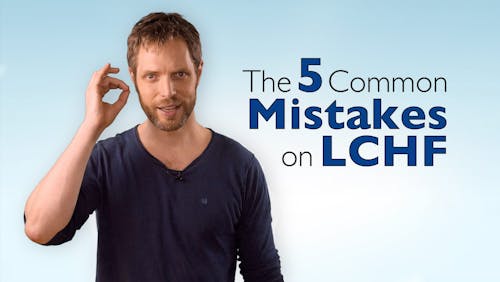Dr. Andreas Eenfeldt: Empowering people everywhere to revolutionize their health
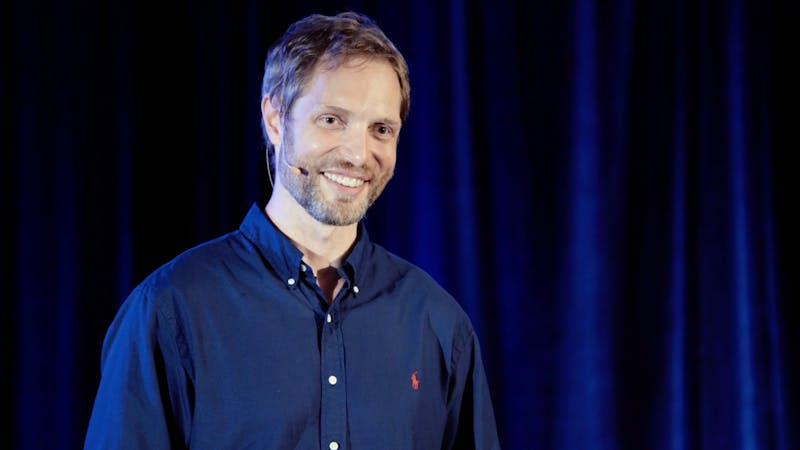
Meet the man who created Diet Doctor: Dr. Andreas Eenfeldt. Who is this towering Swedish doctor who has set out to revolutionize world health? What has propelled him to devote all his time and resources to build the Diet Doctor website into the most trustworthy, evidence-based site for information and support for low-carb and ketogenic eating? (And how does a humble family doctor who practiced in the Swedish town of Karlstad have such a great eye for crisp photos, clear writing and clean web design?) Read on to get more insight into the unique personality and diverse skills of our inspiring leader. (Also check out our in depth story about the growth of Diet Doctor already on the site.)
Here is Dr. Andreas Eenfeldt’s personal story:
If there is a single defining characteristic about Dr. Andreas Eenfeldt, it would be this: when he decides to pursue a goal, he teaches himself everything he can about the subject, then works with determination, drive and focus until he has achieved his aims.While this pattern has played out many times in his life, it has been especially apparent with one project: the Diet Doctor website. Andreas grew his young doctor’s blog to the world’s largest, most-trusted English-language site for information about the low-carb ketogenic diet. Today, tens of thousands of people have been helped by Diet Doctor, which has grown exponentially since Andreas first started blogging in 2007.
“When I decide to do something, I really commit to make it happen,” says Andreas. “Some things take more time than others, but I’ve found — if you keep working at it — you can achieve almost anything.”
Defining characteristic: self-taught tenacity
This defining characteristic first emerged when Andreas was a youth. Born in 1972, he is the son of a construction engineer father and a mother who wrote popular parenting books. When he was about 10, his parents divorced, and Andreas moved with his mother and his younger brother, Johan, from Uppsala, a major city near Stockholm to the historic island of Gotland in the Baltic Sea.
As a teen fascinated with computers, he taught himself coding and programming, mostly to design and release computer games. “We had this little computer crew. I was coding, some other friends were doing graphics, and we had another guy making music on the computer. We’d put it all together and release them as demos.”
When Andreas set his goals on medical school after a mandatory stint in the Swedish military, his ability to learn what was needed to succeed helped him with this goal, too. He had top grades in the subjects he really cared about, but had decidedly average grades in others and certainly not high enough to earn a place in medical school. So he studied and taught himself the skills necessary to ace the Swedish equivalent to the SATs. Andreas went on to thrive in the demanding atmosphere of medical school, where his life-long fascination with the natural sciences, especially biology, physics and chemistry, was a good fit.His ability to learn what needs to be done explains a bit, too, about how he successfully wooed his partner, Kristin Berglund, a nurse and mother of their two young daughters. When they first met, she was recently single and wasn’t interested in dating at all, and especially not a doctor. But she was interested in golf. Andreas taught himself to play well enough to spend time with her and win her over. Mission accomplished, he’s never played golf again.
Unusual skill: poker-playing prowess
And then there was the rather unusual sideline he mastered in the early 2000s when he became a very successful online Texas Hold’em poker player. “I had two bookcases of poker books. I read every word, trying to figure out how the game works — the math, the strategy, the psychology.”
Fortunately for Diet Doctor’s followers, those saved-up poker winnings, which Andreas says were more than he had ever earned as a doctor, funded the first five years of the Diet Doctor site. He gave up poker in the mid-2000s when he realized, despite its intellectual challenges and his winnings, the game did not feed his soul nor his need to contribute to the greater good. “I was attracted to poker’s competitive nature and I was fascinated to understand how the game works well enough so that I could beat it. But I did feel, after a couple of years: ‘This is completely pointless. I am not producing anything of value.'”
Discovered carbs’ negative impact during medical internship
And that’s when his obsession with the world-changing impact of a low-carbohydrate diet really took hold. There is no doubt that Diet Doctor’s growth over the past decade has been driven by Andreas’ characteristic focus, determination and commitment, even as he has added the skills and talent of now about 60 full-time staff and dozens of freelancers worldwide. To this day, he is still one of the first to arrive and last to leave the company’s Stockholm office.
For Andreas, the first inkling of carbohydrates’ negative impact on blood sugar and health started while he was doing his medical internship. By chance, he picked up one of the books by French diet maverick Michel Montignac, famous for touting good and bad carbs in books such as Eat Yourself Slim. Andreas also followed the work of Swedish nutritionist Fredrik Paulún, especially his book on the glycemic index.
“Those works really made me think. It made so much sense based on what I knew from med school, and yet, at the same time, I had been taught none of it. However, it fit perfectly with my understanding on how the body works. So, I started reading other books on the glycemic index,” explains Andreas.
By 2002, right around the time Gary Taubes’ revolutionary article “What if it’s all been a big fat lie?” ran in the New York Times Magazine, Andreas began cutting carbohydrates in his own diet. He’d grown up on bad carbs. “My favorite food as a kid was lots of bread with margarine and honey,” he recalls. Like so many others, he felt much better eating what was at first a moderate low-carb diet and then, with time, moving to a stricter low-carb, high-fat and then eventually to a ketogenic diet.
Patients: “Eat bacon? Yeah, I’ll try that!”
Over the next few years, he began recommending the diet to patients. “When I started, they were like, ‘Eat fat? Butter? Isn’t that dangerous?” I’d say, ‘No, no. That’s old.’ Many of them were really open to giving it a try, the majority I would say. A lot of patients were very happy, especially older men in their 50s and 60s. ‘What?! I can eat bacon!? ‘Yeah, I will try that.’ ”
Over those early years he was also talking non-stop to friends and colleagues about the low-carb, high-fat (LCHF) diet — which in Sweden is the more common name for the ketogenic diet. “I would give these mini-lectures to medical colleagues and friends. But after an hour or so they would say, ‘Can we please talk about something else now?!”To spare his friends from hearing endlessly about his new obsession he soon took to posting about LCHF in two places: on an online low-carb forum and in the comment section of the blog of Swedish general practitioner Dr. Annika Dalhqvist, who was recommending LCHF to patients with diabetes. In 2005, she was reported to Sweden’s National Board of Health & Welfare by two dietitians who claimed she was harming patients by recommending that they eat fat. The investigation, which had the power to censor Dr. Dahlqvist or even revoke her medical license, took two years. She was eventually absolved of any wrong-doing.
Meanwhile, in September of 2007, Andreas remembers getting an early copy of Gary Taubes’ Good Calories, Bad Calories. “I devoured it. I was reading it between patients in the clinic, trying to read it as quickly as I could. Everything fell into place.” He had found his calling — he would blog about the low-carb, high-fat diet and its ability to fight obesity and diabetes and to transform health.
Christmas 2007: The “Diet Doctor” starts blogging
At Christmas that year, with the help of his brother Johan, an IT expert who now works full time at Diet Doctor, too, Andreas set up his own personal blog, calling it Kostdoktorn, which means Diet Doctor in Swedish. When Dr. Dahlqvist was vindicated in January 2008, Andreas’ blog was up and running. It soon became one of the top health blogs in Sweden.
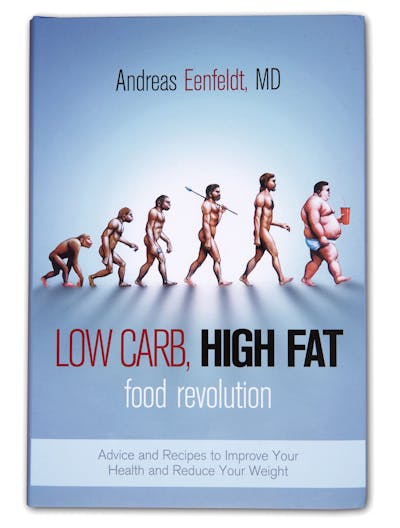


His book is the story about how the entire world fell for the mistaken fear of fat – and the ongoing disaster it started. It also tells stories of people who regained their health and leanness by eating real food again. Released in 2011, The Food Revolution became a bestseller and was translated into nine languages, including English, selling more than 100,000 copies.
One-man low-carb travelling show
Andreas laughs now, thinking back to his very early days, from 2009 to 2011, when he first travelled to low-carb conferences both as a speaker and to gather together the best information for his website. He was a one-man show, collecting and curating the expert opinions, emerging research and patient experiences with this burgeoning way of eating.
With his 6’7″ (202 cm) height he was hard to miss. He would travel with bags of lighting and video equipment, which he set up himself. Then he’d conduct the interviews and edit them himself. Viewing one of his very first, self-shot videos, circa 2009, he both winces and chuckles at his poorly-lit, shaky camera techniques and his general inexperience. “Look,” he says, pointing out his early mistakes: “Low resolution, ambient noise, wide screen, the wrong format! And I talk too much.” But he learned quickly — of course — studying “10 to 20 books about video production, lighting and more….” Now a team of five professionals makes Diet Doctor’s videos.
Andreas, his brother, and Kristin launched the English Diet Doctor site in 2011. And then, bit-by-bit, the Diet Doctor crew began to grow. In 2012 management consultant Bjarte Bakke, from Norway, sought Andreas out, asking if he could fly from Bergen to Karlstad Sweden to take Andreas out for lunch. Bjarte said he wanted to talk to him about health and medicine. “We started talking at that lunch and then we just kept on talking and talking,” remembers Andreas.
“Relentless drive to do good in the world”
Bjarte joined Diet Doctor full-time as Chief Operating Officer in 2015. Looking back now on the years he has known Andreas, Bjarte says: “Andreas is extremely smart, honest, passionate and egoless. He’s a learning machine, and once he’s committed to something, he never stops.”
Those are great qualities, but what Bjarte finds most impressive about Andreas is his relentless drive to do good in the world. “I’ve never met anyone in business who cares so much about helping people and so little about making money for himself. It’s very inspiring to have a selfless leader. It focuses us on spending money on improving our product (making low carb simple) instead of cashing out. Andreas still has amongst the lowest salaries in the company. Actually, I’m not sure how he’s able to pay his mortgage! ”
Andreas says meeting Bjarte was very pivotal to the growth of the company. Starting with that lunch, the two have talked strategy, vision, purpose, how to grow from a respectable blog to a company that could help change world health. They’ve talked about values and integrity, agreeing that the site should always be known for its trustworthiness, simplicity, inspiration and goodness; that it should sell no products, run no ads and take no money from industry. It would offer much of its most important information for free and be funded only by voluntary member contributions. Could that philosophy work to grow a world-wide company with the purpose of empowering people everywhere to revolutionize their health? In June 2014, Diet Doctor tested the idea by launching a paid membership on the Swedish site.
“We thought that if we could get at least 500 members in the first few days, then maybe we would be off to a good start. But we got 2,000,” recalls Andreas.
Membership “experiment” takes off
Membership on the English side just keeps growing: to 5,000 by the end of 2014; 10,000 in 2015; to 60,000 and climbing by early 2019. All the money raised is being put back into the company, to hire staff and grow the operation even further, with the goal of making a low-carb diet simple.
Meanwhile during all this time, Andreas was still working part-time as a family doctor at a primary care clinic in Karlstad. His medical colleagues would send their challenging patients with diabetes or obesity to him. “Those were the patients I specialized in. I liked working with them the best,” says Andreas.
As a doctor he saw the astonishing improvement in the health of his individual patients, especially those with diabetes, when they cut carbohydrates. Almost overnight, they would drastically improve their blood glucose levels, potentially reducing or eliminating the risk of amputations, blindness, kidney failure and other terrible complications.
“You could see it on the patients’ blood sugar charts. It often resembled a cliff. Their blood sugar would be high, they would cut out carbohydrates and then, bang, it could be normal. It was always amazing.”
Impacting more than one patient at a time
Andreas was working three days a week as a doctor and the rest of the time at Diet Doctor, but by 2015 he realized he could do more good in the world by focusing his energies full-time at the company. “I knew I had to get this information out to as many people as possible, so it could impact more than just one patient at a time. This is potentially world-changing.”
Back in 2007 when he began his blog, he thought the health benefits of LCHF were so obvious and indisputable that it would take only a few years before the medical profession, as a whole, would adopt it as the standard of care, especially for obesity and diabetes. Now he has a better understanding of all the barriers, beliefs and biases that are slowing and sometimes even blocking its wider uptake.
“I now think this is a long, long struggle. It gets a little bit better every year, but it could be a decade or more before we really make massive progress — when doctors all around the world prescribe low-carb to their patients with no questions asked. It’s hard to change practice, but if more people work together to make this happen, it will change faster.”
Collaboration, not competition
It is one of the reasons Andreas has chosen to work so collaboratively with low-carb experts all around the world, showcasing their work and research and making Diet Doctor the place to go as the world’s clearing house for reliable information for everything to do with the low-carb ketogenic field.
“We are all so happy to get the opportunity to work with him!” said Dr. Sarah Hallberg, Medical Director of Virta Health and one of the leading researchers in the US for low-carb diets and diabetes. “Andreas is fantastic as a collaborator. He helped us get the results of our study out which benefits many!”
For Andreas, it is a no-brainer that collaboration, not competition, is the way to grow a global revolution. “It has to be a team effort — by thousands of talented, passionate people — by everybody who thinks this is important information to improve world health.”
With his characteristic determination and focus, the support of a growing Diet Doctor team, and the contribution of thousands of Diet Doctor members who share his vision, Andreas won’t stop until this goal is reached.
More in the series
Earlier
The story of Diet Doctor – more about the beginnings of the Diet Doctor company
